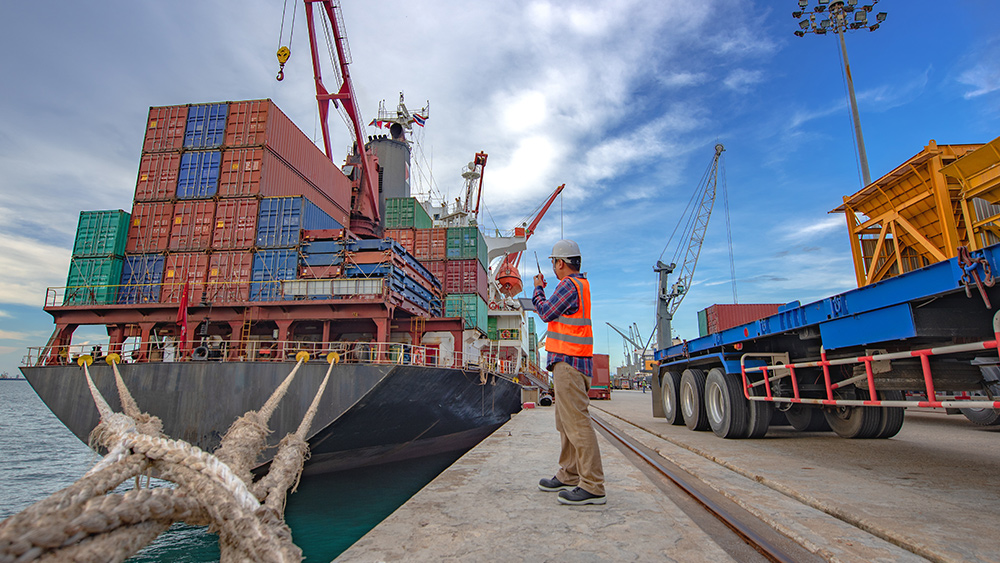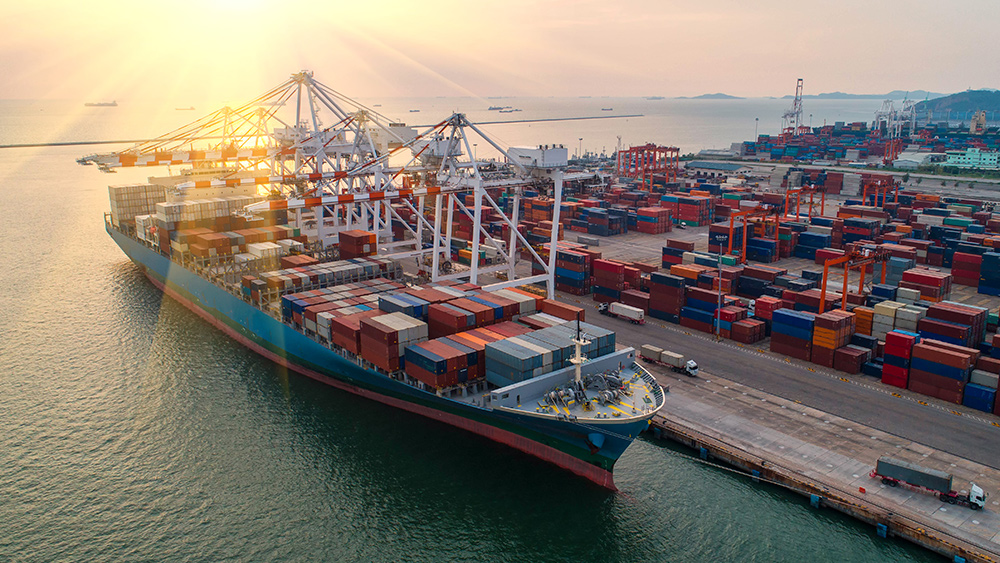Moscow wins again as Houthi rebels attack Western vessels, while Russian oil tankers freely navigate
12/28/2023 / By Belle Carter

According to finance analysts, it has been becoming Russian President Vladimir Putin’s advantage that Houthi militants are attacking Western vessels along the Red Sea Route. A financial blogger, Swiss journalist and political commentator who goes by the name Russian Market (RM) on X pointed out that the recent provocations aimed primarily at Western vessels have the potential to reshape the dynamics of global trade.
He said that the route through the Red Sea is a pivotal conduit for international commerce is now a contested arena as the Yemeni rebel group has been pursuing all Israel-bound vessels due to hostilities in Gaza. The Houthis declared their support for Hamas and said they would target any ship traveling to Israel. In November they seized what they said was an Israeli cargo ship and they since have attacked several commercial vessels with drones and ballistic missiles.
Due to this, major shipping firms including Mediterranean Shipping Company, Maersk, Hapag-Lloyd and the oil company BP have all said they are diverting vessels away from the Red Sea. Shipments have been rerouted around the southern tip of Africa, which, he said, poses substantial challenges. “Not only is this alternative longer and more expensive, but it also threatens to disrupt the finely tuned supply chains that European industries depend on,” RM discussed in an article on RT. (Related: Major shipping giants HALT Red Sea route following Houthi attacks on shipping vessels.)
Meanwhile, many Russian oil tankers continue navigating the waters to deliver oil shipments to Asia. “If substantiated, this selective targeting highlights the geopolitical intricacies in play, positioning maritime trade as a pawn in broader geopolitical maneuvers,” he said. The blogger also highlighted that as Europe actively seeks alternatives to Russian oil, Moscow pivots to increase oil exports to Asia, resulting in a staggering 140 percent surge in Red Sea oil traffic, underscoring its adaptability in the face of changing dynamics. The said route is historically a key route for Western shipping and Russia’s ability to navigate and capitalize on the geopolitical landscape, coupled with the targeted nature of Houthi attacks, suggests a reordering of influence. “The West finds itself losing its grip on a critical trade route as Russia strengthens its foothold,” RM added.
He further observed that Russia has reconfigured its oil shipments through the Northern Sea Route (NSR) to China, circumventing sanctions and capitalizing on the potential for time and fuel savings. The NSR, stretching 3,500 miles along Russia’s Arctic coast, offers a faster route to China’s Rizhao port, which takes a mere 35 days — 10 days less than the traditional southern route via the Suez Canal. Russia’s motivation lies in the considerable advantages of reduced time and fuel costs, presenting an attractive alternative for its oil exports, RM added. Rosatom, overseeing the NSR, highlights that non-ice-class ships can now safely navigate the route during improved conditions in summer and autumn. This strategic shift suggests Russia is exploring using non-ice-class vessels, potentially reshaping conventional shipping practices in the Arctic.
Russia’s proactive stance is further evidenced by the expansion of its dark fleet, ensuring the continuity of oil revenues despite sanctions. Deputy Prime Minister Yuri Trutnev anticipates a record-breaking year for the NSR, with freight turnover expected to exceed 36 million tons, a ninefold increase since 2015, he said.
U.S. shoots down four drones launched from Houthi-controlled areas in Yemen in southern Red Sea
As per the U.S. Central Command (Centcom), they shot down four drones headed towards a U.S. destroyer in the southern Red Sea and launched from Houthi-controlled areas of Yemen on Saturday, December 23, when they responded to distress calls from two ships under attack.
“These attacks represent the 14th and 15th attacks on commercial shipping by Houthi militants since October 17,” Centcom posted on X.
On December 23 two Houthi anti-ship ballistic missiles were fired into international shipping lanes in the Southern Red Sea from Houthi controlled areas of Yemen. No ships reported being impacted by the ballistic missiles.
Between 3 and 8 p.m. (Sanaa time), the USS LABOON (DDG… pic.twitter.com/jcBisbXBaS
— U.S. Central Command (@CENTCOM) December 24, 2023
A Norwegian-flagged, owned and operated chemical and oil tanker reported a near miss of a Houthi drone attack, and a Gabon-owned, Indian-flagged crude oil tanker reported being hit by a one-way attack, the post said. Two Houthi anti-ship ballistic missiles were also “fired into international shipping lanes in the Southern Red Sea from Houthi-controlled areas of Yemen,” it said. “No ships reported being impacted by the ballistic missiles.”
Meanwhile, a Japanese-owned chemical tanker got struck Saturday off the coast of India. It was targeted by a drone “fired from Iran,” the U.S. Department of Defense said. Saturday’s attack took place at about 10:00 a.m. local time and caused no casualties aboard the vessel, it said, adding that a fire was extinguished. The U.S. military “remains in communication with the vessel as it continues toward a destination in India,” it added.
Visit WWIII.news to get updates on the escalating conflict in the Middle East.
Sources for this article include:
Submit a correction >>
Tagged Under:
cargo ships, CENTCOM, chaos, commerce, dod, geopolitical crisis, global commerce, Houthi, Houthi rebels, Iran, Israel, maritime commerce, maritime trade, Middle East, military weapons, national security, Northern Sea Route, pentagon, Putin, rebel militants, Red Sea route, Russia, sanctions, shipping, supply chain, trade, violence, west, Western vessels, world trade, world war, WWIII, Yemen
This article may contain statements that reflect the opinion of the author
RECENT NEWS & ARTICLES
SupplyChainWarning.com is a fact-based public education website published by SupplyChainWarning.com Features, LLC.
All content copyright © 2021 by SupplyChainWarning.com Features, LLC.
Contact Us with Tips or Corrections
All trademarks, registered trademarks and servicemarks mentioned on this site are the property of their respective owners.



















